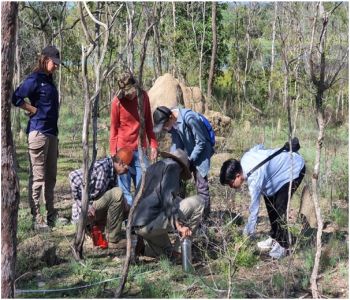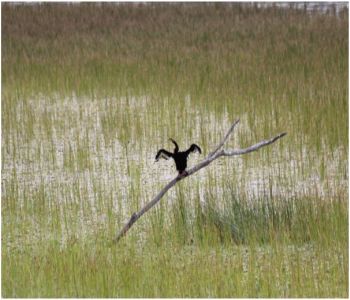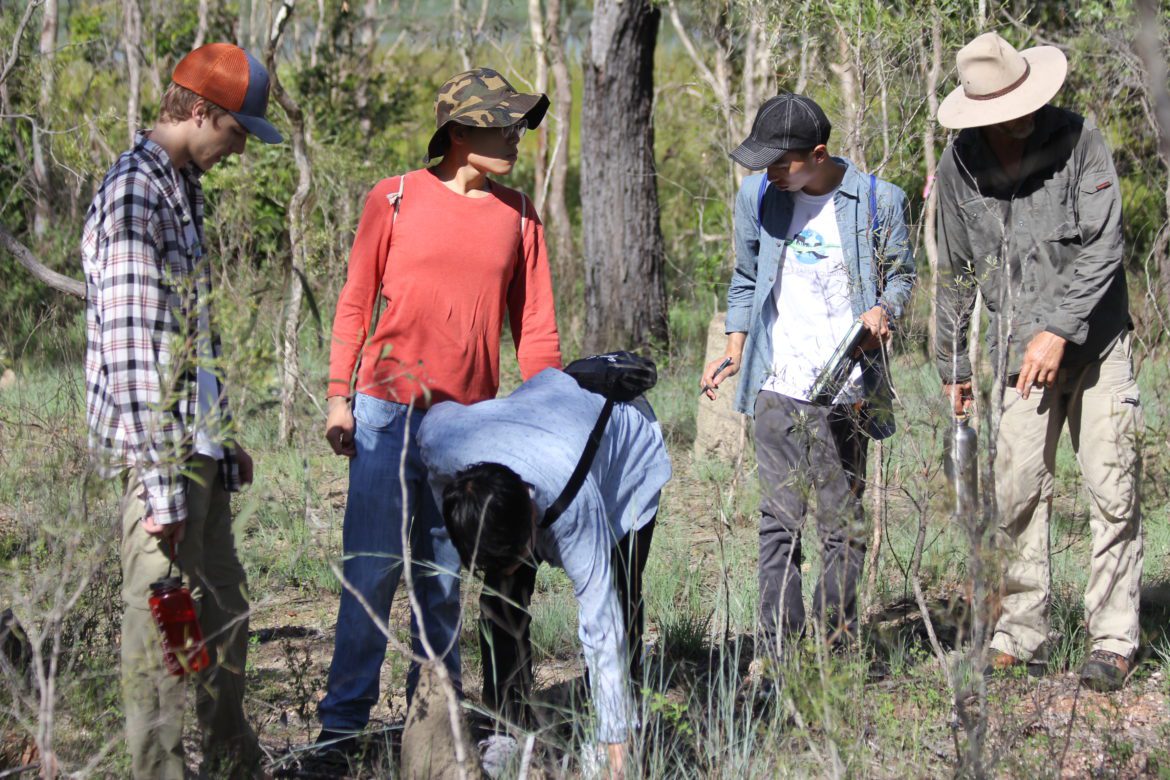The fact is our planet is not that big. You can fly around it in about 40 hours, watching the oceans and lands slip by underneath your aircraft. And on this small but beautiful planet over the last 200 years, we have destroyed >77% of the terrestrial ecosystems – the temperate and tropical forests, the savannahs, the wetlands, and the grasslands. Where these ecosystems remain intact and in large areas, it is called wilderness. But when we destroy wilderness, along with the destruction of our remaining ecological systems we also lose things not often considered – ancient cultures, languages, historical markers of human evolution and simply the chance to gaze at the universe on a clear night with no light pollution. Perhaps saddest of all for humanity is the fact that children hundreds of years from now may not be able to experience any of these things.

Unless we do something really big, audacious and hugely ambitious.
At O2E’s Australian International Volunteering program, Aussie Bush Conservation Safari project (Forever Wild), we often hear the question ‘what can we do to stop the destruction of our earth?’ And we have not written this article to list all the challenges facing our planet; we all already know them. This is an article about what we can do at a scale that will make a meaningful change to our major planetary systems and to protect irreplaceable aspects of our humanity.

Forever Wild is the world’s first PSI – Planetary Systems Initiative – and has set out to directly tackle the increasing rate of loss of the remaining 23% of intact terrestrial ecosystems – wilderness – and all the outstanding values they hold. Forever Wild is based on a new field of science known as planetary systems science, but also uses localised ecological and social science and practice to drive our programs.
We know, for example, that when we protect ecosystems, we also protect the stored carbon, and with the right management can absorb and store even more. We do not have the luxury of thinking and acting on a small scale. Time is of the essence, and we must work now to change the relationship of human society with our planet. Heading on a trip with O2E is itself a hugely positive action in itself. You are going because you love what this planet is, you love the wild experiences and the incredible species we share this Earth with. And when you travel with O2E and click ‘yes’ to your $5 carbon offset, you are directly supporting the world’s first Planetary Systems Initiative because that $5 goes to Forever Wild to buy 1 acre of our planet to protect. That’s the thing about wilderness – while it is actually priceless, humans still sell it very cheaply!

That 1 acre is a physical piece of our planet that is home to hundreds of species, upon which ancient and contemporary human cultures and histories exist, and that can absorb and store carbon. In fact, 1 acre of Australian wilderness can store between 2.5 and 22 tonnes of carbon, depending on the vegetation type. We can protect the species that live there, the Indigenous cultures that are tied to that land, and we can produce wilderness-friendly food on it. That is a LOT of impact for $5. And if you come to visit the O2E project at a Forever Wild Shared Earth Reserve you get to experience all this first-hand. You will see, feel and smell the incredible reality of true wilderness landscapes in all their beauty, work with the animals of these places and know that your money and your effort are physically protecting our Earth. Every donation to buy land and store carbon also receives a certificate to thank you for your commitment and to remind you that our future is up to us.
So next time you wander down the street to get a coffee, just think… the price of 1 cup of coffee = 1 acre of planet Earth. If everyone you know, and everyone they know gave up one cup of coffee just once a week imagine how much of our planet we could protect!!
$5 =1 cup of coffee for 10 minutes OR
$5 =1 acre of Planet Earth – forever
What do you choose?
LEARN MORE ABOUT AUSSIE BUSH CONSERVATION PROGRAM
Written by Fiachra Kearney, CEO of Forever Wild


